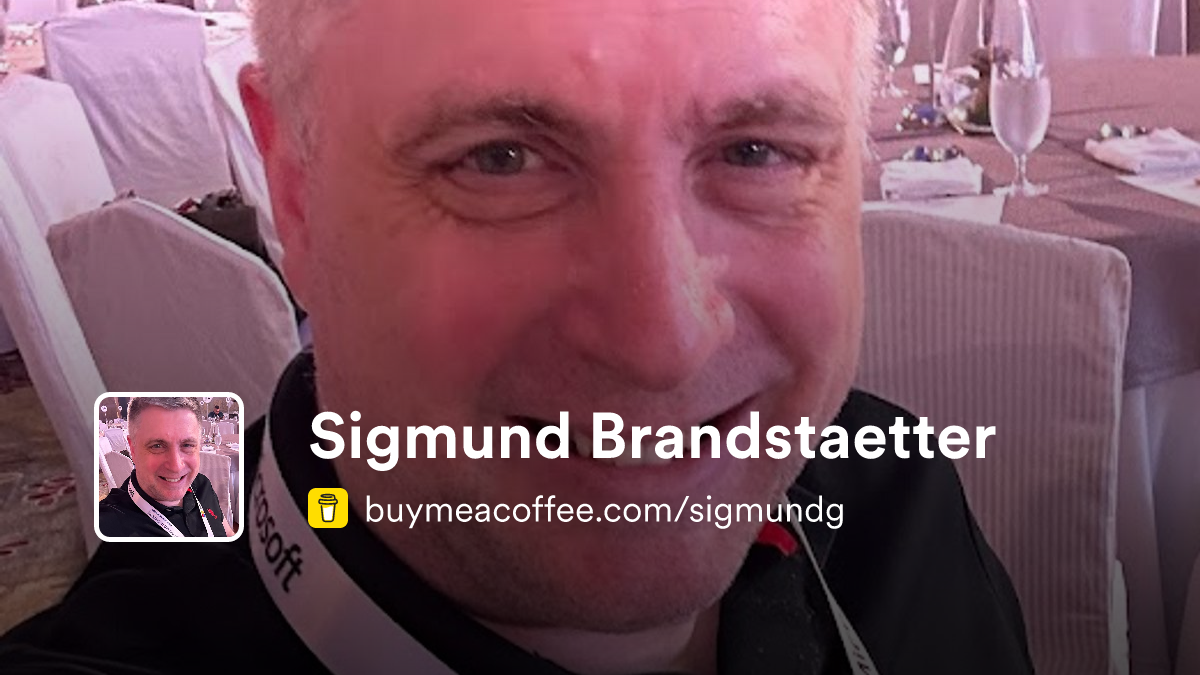Why Using Signal’s Nickname Feature Is Essential for Privacy and Security in Group Chats
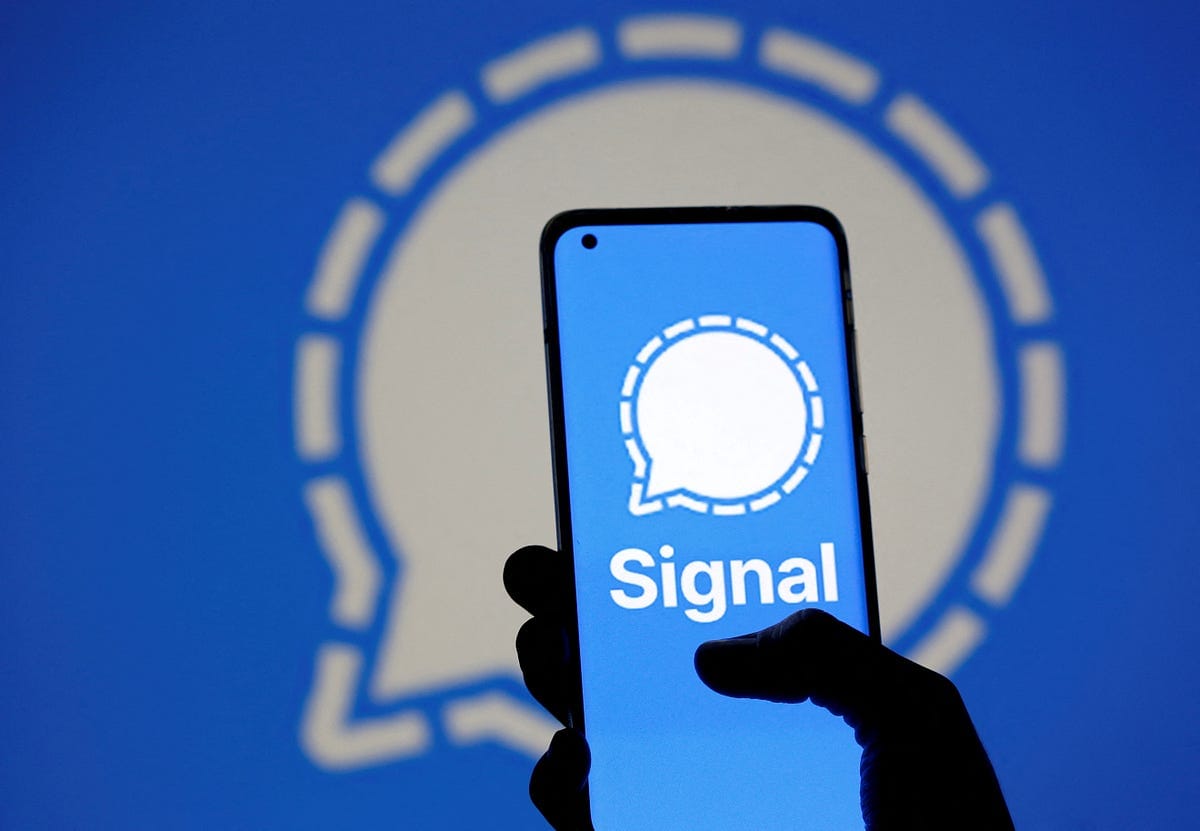
Signal has long been given praise as one of the most secure messaging platforms, offering end-to-end encryption and robust privacy features. However, very recent incidents—such as the inadvertent inclusion of a journalist in a Signal group chat discussing sensitive U.S. military operations—point out the importance of using a little-known (to many) feature of Signal to avoid confusion and enhance security, Nicknames.
The Context: Signal’s Role in Sensitive Communications
Signal is widely used by privacy-conscious individuals, including government officials, journalists, and activists. I use Signal for many of my OSINT tasks too. Its encryption ensures that conversations remain private, but encryption alone cannot prevent human errors such as adding the wrong person to a group chat. This was exemplified in the recent case where a journalist was mistakenly included in a Signal group chat discussing U.S. airstrikes in Yemen. The incident revealed vulnerabilities not in Signal’s technology but in its user practices. Some further reading on the topic:

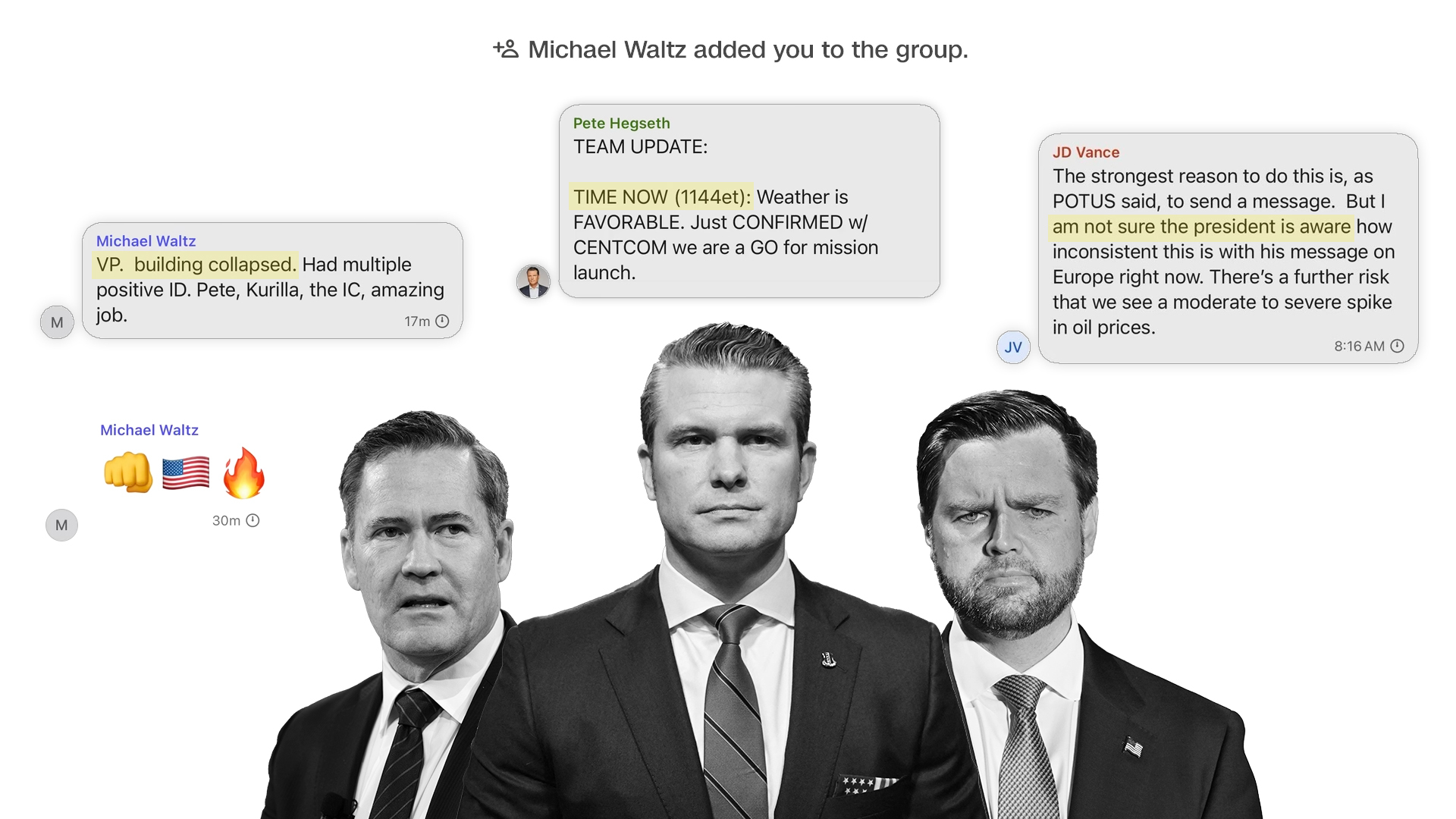
What Happened?
A journalist from The Atlantic was inadvertently added to a Signal group chat involving high-ranking U.S. officials discussing military strategies. This mistake led to the disclosure of sensitive information and raised questions about operational security and the use of unsecured communication platforms for classified discussions. While Signal’s encryption protected the content from external interception, the accidental inclusion of an unauthorized participant highlighted the need for better organizational tools within Signal, aside of course in this case, better OPSEC on the part of the US's Top Security Official, which is sad if you let it think in for a while.
The Nickname Feature: A Solution to Human Error
Signal's nickname feature, something that few people actively use, and many people never have heard of, allows users to assign custom labels to their contacts. These nicknames are stored locally on the user’s device and are end-to-end encrypted, meaning they are visible only to the user who created them. This feature is particularly useful for managing contacts with similar or identical display names or initials, something that you almost certainly will encounter if you actively work as a journalist with many contacts, which can otherwise lead to confusion when creating group chats or initiating conversations.
Key Benefits of Using Nicknames
- Avoiding Mistaken Identity: Let's stick to the recent example: Assigning nicknames like “National Security Adviser” or “Journalist” helps differentiate between contacts with identical display names or contacts who just use an Initial.
- Streamlining Group Creation: When adding participants to a group chat, nicknames make it easier to identify the correct contact without needing to verify phone numbers or backtrack through previous chats.
- Improved Organization: For journalists and professionals juggling numerous contacts, nicknames provide an efficient way to categorize individuals based on roles or relevance.
Why This Matters in Light of Recent Events
The Yemen airstrike Signal group incident underscores how human errors can undermine even the most secure communication platforms. While Signal provides robust technical safeguards against external threats, it cannot prevent internal mistakes like adding unauthorized participants. The nickname feature offers a proactive way to mitigate such risks. Aside from that, sticking to clear and esteblished OPSEC procedures obviously is fundamental.
Lessons Learned from the Incident
- Operational Security Risks: Given this use case we took here, sensitive discussions should ideally occur within secure government systems rather than informal commercial platforms like Signal. However, when Signal is used, features like nicknames can help reduce errors.
- Accountability in Group Chats: Misidentifying participants can lead to unauthorized disclosures, as seen in this case. Using nicknames ensures clarity about who is involved in a conversation. Having said this, keep in mind that the nickname identifies the contact only to you, who has created this nickname on your own device, it won't help others.
- Privacy Concerns: Even outside government contexts, confusion over identities can lead to privacy breaches for journalists, activists and other users handling sensitive information. For political activists in certain countries, mistakes like this can lead to bodily harm or even death.
Practical Tips for Using Nicknames Effectively
To maximize the benefits of Signal’s nickname feature:
- Assign nicknames immediately after adding new contacts based on their role or relationship.
- Use descriptive labels (e.g., “Investigative Journalist,” “Cybersecurity Expert”) for clarity.
- Regularly update nicknames as roles or contexts change. In my example screenshots below i use a name together with a company where the person works, if that person moves jobs, update the nickname.
- When creating group chats for sensitive discussions, double-check participants using their assigned nicknames.
In this example, I have a contact called Oliver that I will assign a nickname to, for this, you just have to go to the contacts in question:
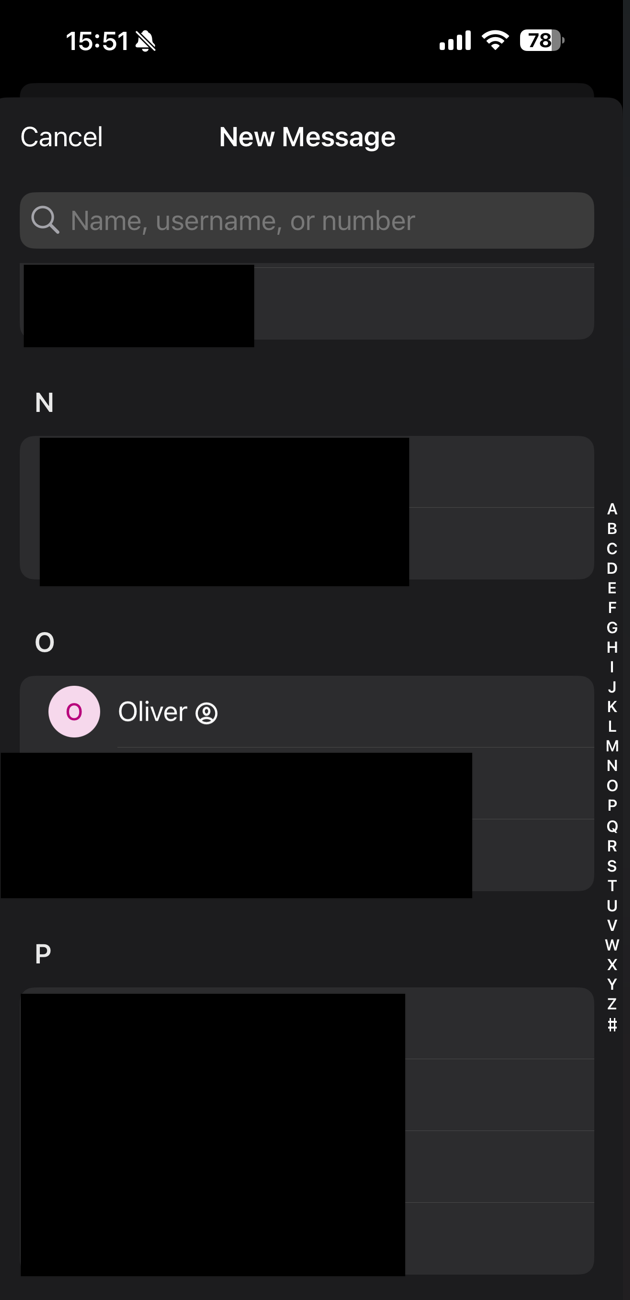
In the details for the contact you will see Nickname, you can just edit it there
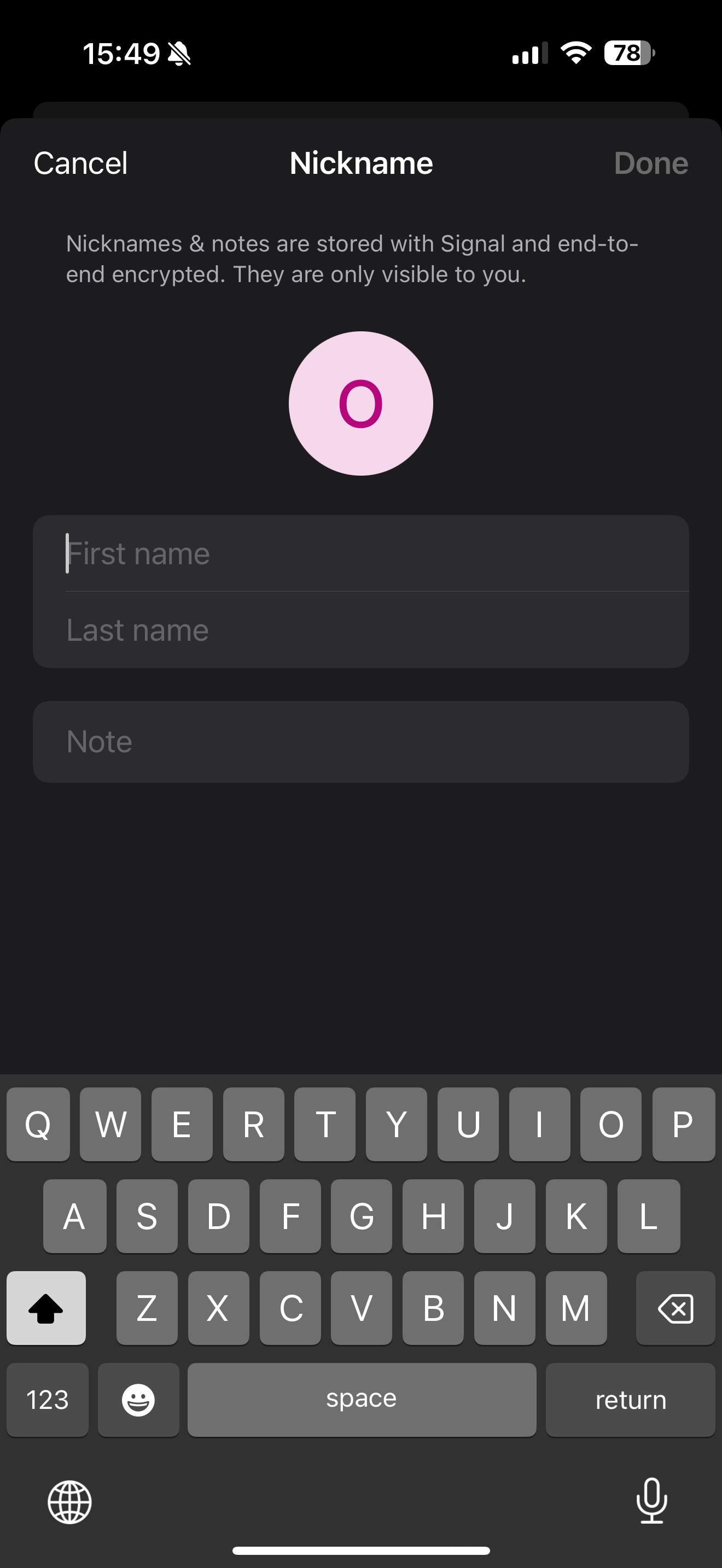
It will update once you save it
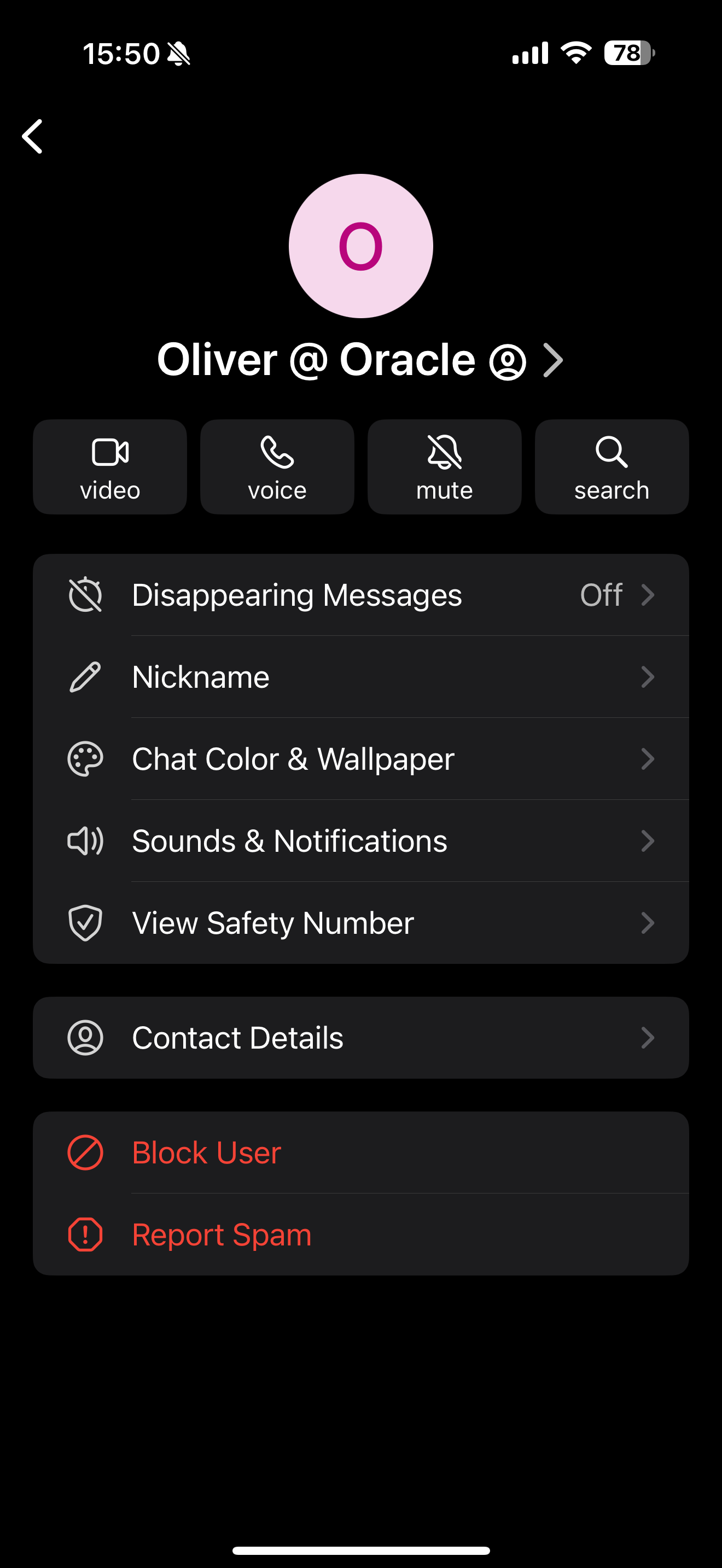
And in the contact list when creating a new message or group chat, you will now see the nickname.
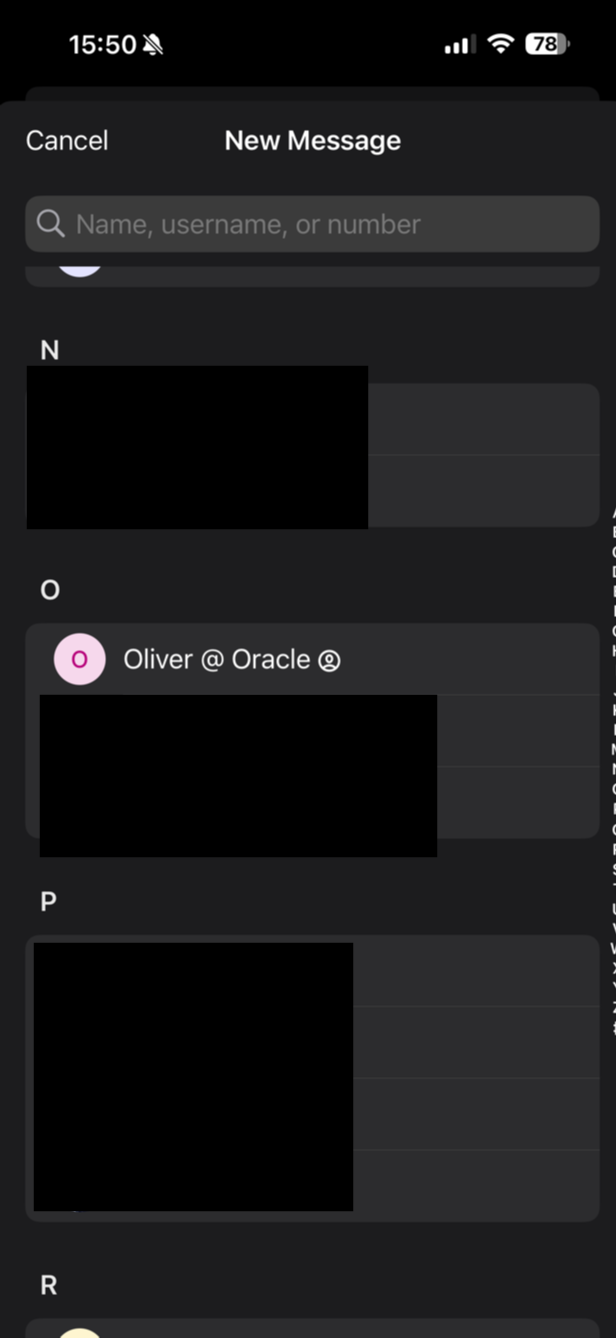
Additional Security Features Worth Considering
Beyond nicknames, Signal offers other features that help you to enhance privacy:
- Usernames: Connect with others without sharing your phone number.
- Disappearing Messages: Automatically delete messages after a set duration.
- Privacy Settings: Block people from finding you via your phone number.
These tools complement the nickname feature by further reducing risks associated with human error and accidental disclosures. They are also well documented here:
https://support.signal.org/hc/en-us
Wrap Up
While encryption protects conversations from external threats, human mistakes—like adding the wrong person to a group chat—can still compromise security and privacy. The nickname feature on Signal helps to address this issue by allowing users to organize their contacts effectively and avoid confusion during sensitive communications.
It is important to end this with the statement that there is nothing wrong with Signal as a messaging app, it is still one of the most private and secure ones, but you still have to apply common sense and OPSEC to everything you do, you cannot expect the app to do it all for you.
Further Information on Signal

And as usual, if you like my articles, buy me a coffee ☕
